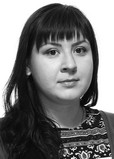Creativity encouragement model in elective academic physical education and sports disciplines
Фотографии:
ˑ:
PhD, Associate Professor A.V. Sharonova1
N.S. Lesheva1
PhD, Associate Professor O.V. Mironova1
PhD, Associate Professor I.S. Moskalenko1
1St. Petersburg State University of Architecture and Civil Engineering, St. Petersburg
National architecture and civil engineering universities have always given a special priority to the education service quality to meet expectations of the potential employers albeit it should be mentioned that the graduates are still often short of the professional training standards. The new Federal State Higher Education Standards (FSHES) are expected to improve the academic education quality. The study analyzes practical experience of the competence-focused training approaches at the construction university; summarizes experiences and practices of the creativity training models, particularly for the architecture universities; and offers a new creativity encouragement model applicable in the elective academic physical education and sports disciplines – that were designed and tested by the Physical Education and Sports Department faculty of St. Petersburg State University of Architecture and Civil Engineering. The creativity encouragement model gave a special priority to the creative formats of the training sessions and progress motivations and interests of the students. The training process goals were attained by specific creativity encouragement tasks including dancing elements and physical practices. A special attention was given to the modern training models, practical experiences of the students in sports, dances and fitness domains and theoretical trainings to improve their competence in the modern fitness technologies. The new creativity encouragement model testing experiment showed its high benefits for the elective academic physical education and sports disciplines.
Keywords: physical education, students, creative competences, architects, creativity.
References
- Vinogradov I.G., Tokareva A.V. Formirovanie professionalnykh i lichnostnykh kompetentsiy studentov stroitelnykh spetsialnostey sredstvami fizicheskoy kultury v tekhnicheskom vuze [Building professional and personal competences in students majoring in construction by means of physical education in technical university]. Uchenye zapiski universiteta im. P.F. Lesgafta. 2016. no. 5(135). pp. 45-50.
- Voronin A.N., Galkina T.V. Diagnostika verbalnoy kreativnosti (adaptatsiya testa Mednika) [Diagnosis of verbal creativity (adapted Mednik test)]. Metody psikhologicheskoy diagnostiki. 1994. no. 2. pp. 39-70.
- Voronin A.N. Diagnostika neverbalnoy kreativnosti (kratkiy variant testa Torrensa) [Diagnosis of non-verbal creativity (short version of Torrance test)]. Metody psikhologicheskoy diagnostiki. 1994. no. 2. pp. 5-39.
- Kostromin O.V., Zaitsev A.V., Bobrov I.V. Organizatsionno-pedagogicheskoe upravlenie sportizatsiey fizicheskogo vospitaniya studentov v protsesse realizatsii elektivnykh distsiplin po fizicheskoy kulture i sportu [Educational and managerial provisions for sportizated physical education in academic elective physical education]. Teoriya i praktika fiz. kultury. 2019, no. 4, pp. 33-35.
- Lobanov Yu.Ya., Sharonova A.V., Mironova O.V. et al. Ispolzovanie elementov distantsionnogo obucheniya v protsesse osvoeniya distsipliny «Elektivnye kursy po fizicheskoy kulture i sportu» [Use of distance learning elements in Elective courses in physical education and sports discipline mastering process]. Uchenye zapiski universiteta im. P.F. Lesgafta. 2018. no. 12 (166). pp. 144-148.
- Tokareva A.V., Mironova O.V., Moskalenko I.S. et al. Formirovanie navykov organizatsii samostoyatelnykh aerobnykh trenirovok u studentov vuzov dlya uspeshnoy sdachi ekzamenatsionnoy sessii [Forming self-reliant aerobic training process management skills for success in examinations]. Teoriya i praktika fiz. kulturyi. 2016. no. 9. pp. 12-15.
- Elmurzaev M.A., Panchenko I.A., Smirnova N.V. Kulturosozidayushchiy potentsial fizicheskoy rekreatsii [Culture-creating resource of physical recreation]. Teoriya i praktika fiz. kultury, 2018, no. 4, pp. 102-104.
- Elmurzaev M.A., Ponomarev G.N. Sotsiokultupny potentsial fizicheskoy rekreatsii [Sociocultural Potential of Physical Recreation]. Teoriya i praktika fiz. kultury. 2014. no. 2. pp. 52-54.
- Elmurzaev M.A. Sportivnoe zrelishche kak chast fizicheskoy rekreatsii [Sports show as a part of physical recreation]. Teoriya i praktika fiz. kultury, 2014. no. 6, pp. 49-51.



 Журнал "THEORY AND PRACTICE
Журнал "THEORY AND PRACTICE